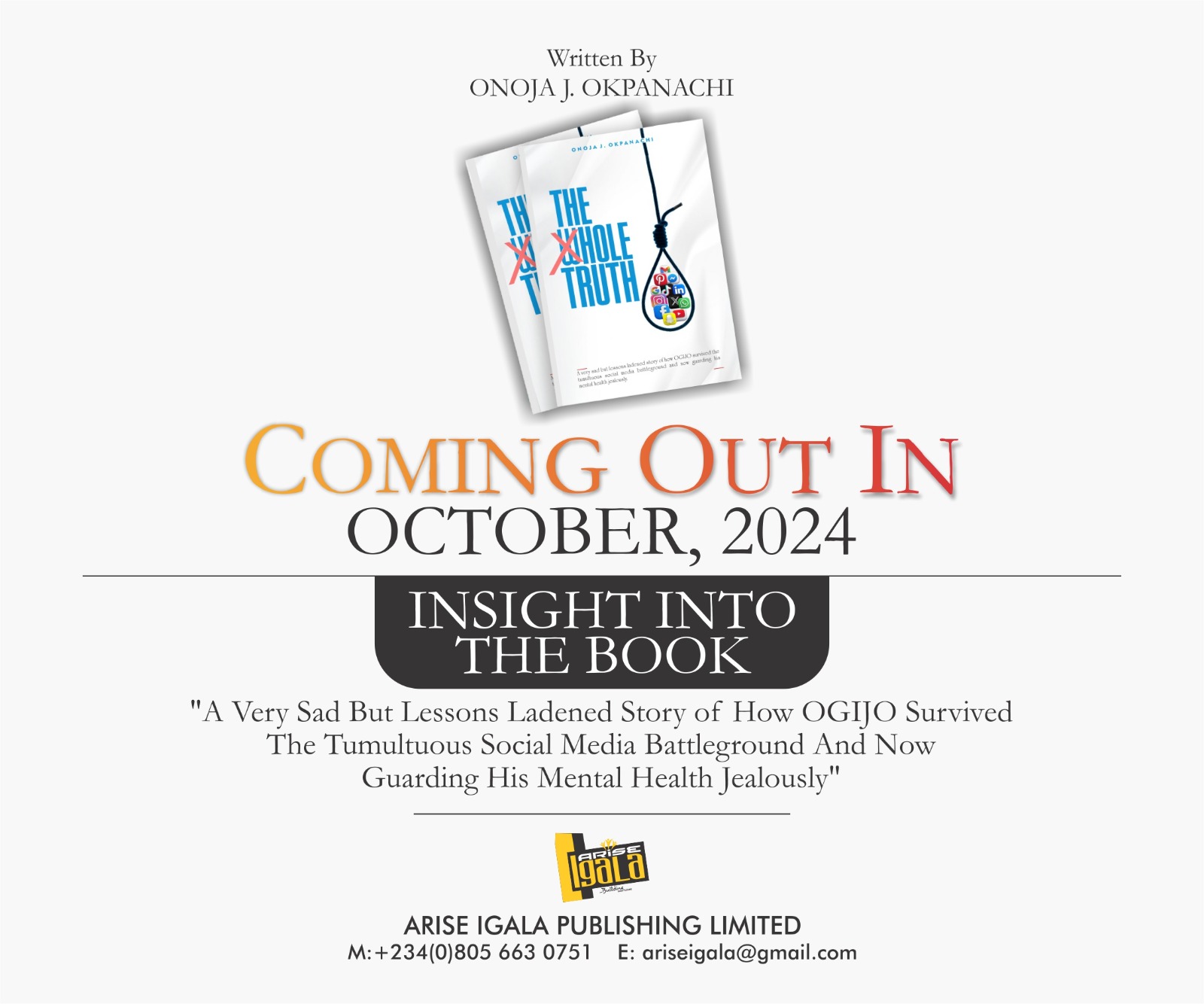WHY DO WE BELIEVE LIES?
By NATHAN OGUCHE EMMANUEL
 Honesty is said to be the best policy but the lack of honest people in our society has
Honesty is said to be the best policy but the lack of honest people in our society has
reduced such common maxim to a mere rhetoric. History of mankind is deluge of
men and women, children and adults, who tell lies with reckless audacity. Among us
are crafty liars, seasoned liars whose daily bread depend on how much lies they tell.
Psychologists have discovered that children begin to lie as early as age two. Some
experts even consider lying a developmental milestone, like crawling and walking,
because it requires sophisticated planning, attention and the ability to see a situation
from someone else’s perspective to effectively manipulate them. But the lying
capacity of most people gets regulated and controlled as they develop a sense of
morality.
People make a living through lies. Politicians tell lies for power ascendancy and as a
means of clinging to power. Sometimes, people lie to inflate their public image, to
create a self-worth that is directly opposite of who they truly are.
We accept lies when the reality is not what we desire. When the reality is the
opposite of what we cherish, we resort to telling lies, either to make us acceptable
by significant others or as a means of making us feel better about our realities.
Lies are formulated just to conceal truth. We claim to have attained a height and
accomplished a goal, even if when are far from the perimeter of those claims. Again,
we engage in this unthinkable deception in order to attract applause even when all
we deserve is contemptuous shout.
That human beings should universally possess a talent for deceiving one another
should not come to us as a surprise. In life, we have learned that truth is not always
pleasant, thus we accept lies that have the potential of softening the blow of a harsh
reality. We therefore engage in deception as a mechanism of coping with the sad
reality. In this case, ignoring the truth is how we deal with the reality.
There is nothing that is as lethal as self-deception. Most often than not, while the
liar gets resounding applause from those around him, he is often dehumanised and
disoriented on the inside. The life of a liar is therefore that of self-delusion, full of
contradictions and self-denial.
Despite all the danger associated with lies, the business keeps burgeoning like Ponzi.
From generation to generations, history has the records of those who have attained
‘enviable’ heights through manipulations, deceits and lies.
The political terrain has been hijacked by people who tell you something and mean
another; those who promise heaven on earth during elections only for the heaven to
manifest in their homes alone while leaving the electorates to roast in hell on earth.
Liars are today seen scoring more goals than those who uphold the principle of
fairness and truth. As the line between truth and lie gets blurred by the day, fair
play keeps attracting reproach and condemnation while orchestrated foul play is
what score the highest goals.
One lie about truth is that the former has a shorter lifespan. Of what benefit is the
long span of truth if it cannot demystify lies and strip it bare for all to see? Indeed,
there are many acceptable realities that enjoy the status of populism by flying on the
wings of lies and deceits.
Why do people believe in lies? Why will a man who once deceived you come to you
with tongue-coated lies and you still believe him? Why are men vulnerable to lies
and deceptions? Why do some lies “stick” in the public consciousness even when
they are proven to be false?
Lie is especially likely to stick when it conforms to our pre-existing political, religious,
or social point of view. This explains why our ideological and personal worldviews
have become the major albatross in our quest to uncovering the truth about our
social realities.
Can you not see that the most difficult people to change are those who believe in
something for political and religious reasons? Indeed, it is far harder to change their
minds and have them understand a fact that is entirely different from theirs.
No doubt, a little lie can metamorphose into sequences of lies. Thus, a drop of lie is
potent enough to birth a bigger lie. Likewise, engaging in small acts of deception can
lead to bigger acts of deception. In order to maintain such “reputation” of a stable
identify, series of lies are manufactured, thereby yielding permanent concealment of
truth.
Also, the fear of hurting the other person when truth is told most times, diminishes
the travelling capacity of truth. This gives lie a stronger wave to cover longer
distance. As many will not want to hurt their loved ones and so would want to play
well by telling the lies with the hope of telling them the truth later on.
Over time Igala people have not been bold enough to tell themselves the basic
truth. Truth about politics. Truth about governance and leadership. Truth about
socio-cultural renaissance. Truth about socio-economic prosperity. Truth about our
culture and truth about truth.
It is high time we threw away the regalia of deception and put on the apron of truth
no matter how unfitting and discomfiting. The destruction of Igalaland is not done
by another man. Likewise, no outsider can build the Land better than we can
ourselves. The fortune or misfortune of the Land is in the hands of its inhabitants.
This is truth in its truest and purest form.









